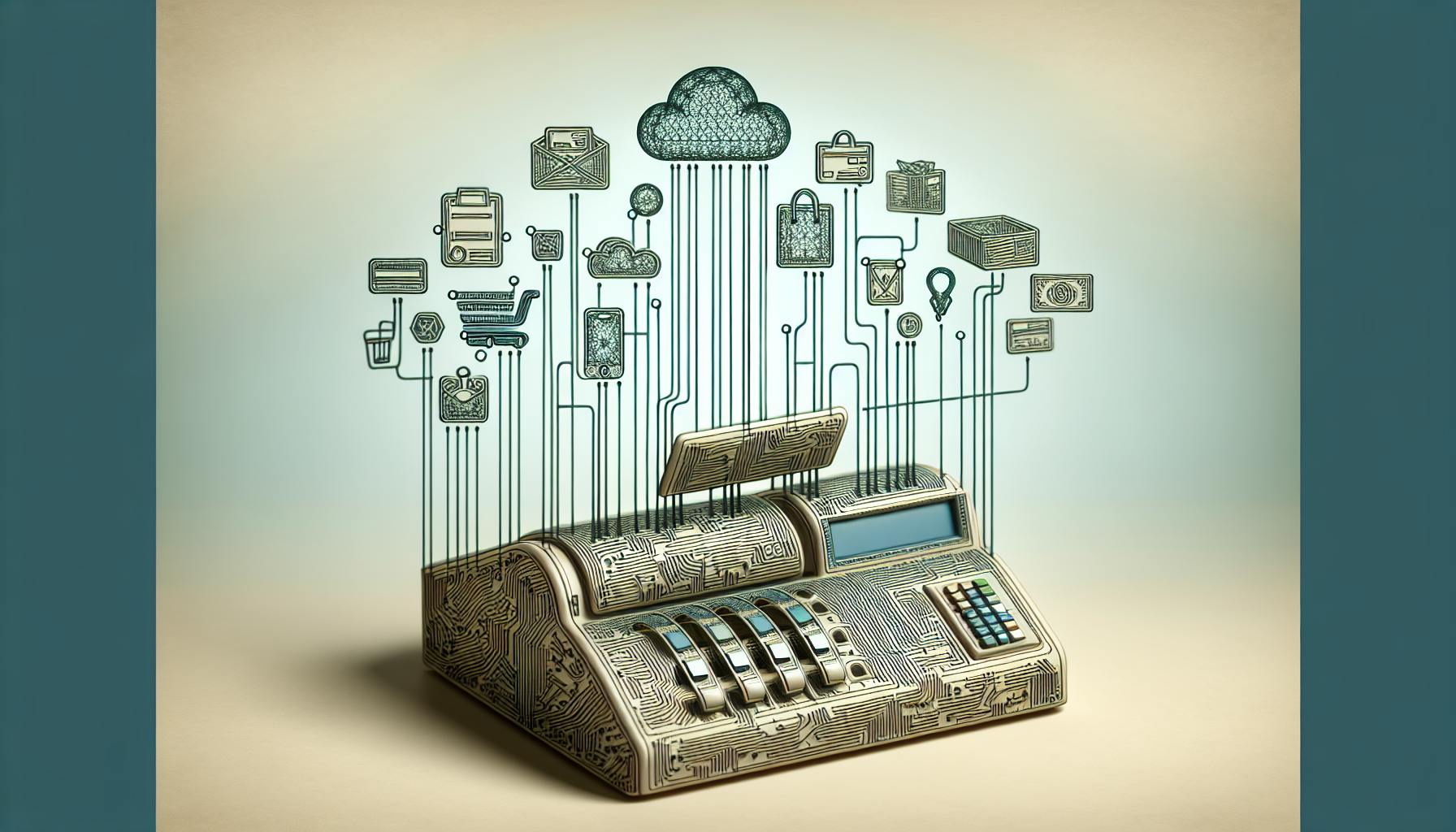Maintaining compliance with Generally Accepted Accounting Principles (GAAP) is crucial for businesses. The choice between outsourced and in-house accounting services can significantly impact a company's financial management and GAAP compliance.
Outsourced Accounting: Cost-Effective and Expert Knowledge
- Lower costs, no training or salary expenses
- Access to specialized knowledge and expertise
- Easy to scale, flexible resources
- Lower risk, external oversight and quality control
- Outsourced provider ensures GAAP compliance
In-House Accounting: Direct Control and Quick Access
- Direct control and customization
- Quick access to financial data
- Customized solutions tailored to business needs
- Higher upfront costs, training, and salaries
- Limited expertise, potential knowledge gaps
- Difficult to scale, limited resources
- Higher risk of errors, fraud, and non-compliance
- In-house team responsible for GAAP compliance
Quick Comparison
| Criteria | Outsourced Accounting | In-House Accounting |
|---|---|---|
| Cost | Lower costs, no training or salary expenses | Higher upfront costs, training, and salaries |
| Expertise | Access to specialized knowledge and expertise | Limited expertise, potential knowledge gaps |
| Scalability | Easy to scale, flexible resources | Difficult to scale, limited resources |
| Control and Customization | Less control, but scalable and flexible | Direct control and customization |
| Risk Management | Lower risk, external oversight and quality control | Higher risk of errors, fraud, and non-compliance |
| GAAP Compliance | Outsourced provider ensures compliance | In-house team responsible for compliance |
When choosing between outsourced and in-house accounting services, businesses should consider factors like size, complexity, budget, compliance priorities, and long-term goals. A hybrid approach, combining the benefits of both solutions, can also be an effective strategy.
In-House Accounting: Direct Control and Quick Access
In-house accounting refers to managing a company's financial activities internally, where a team of accountants is employed directly by the organization. This approach provides direct control and quick access to financial data, enabling businesses to make informed decisions promptly.
Advantages of In-House Accounting
Here are the benefits of in-house accounting:
| Advantage | Description |
|---|---|
| Direct control | Businesses have complete control over their financial operations, allowing for swift decision-making and prompt responses to changing market conditions. |
| Quick access to financial data | In-house accountants can provide immediate access to financial information, enabling businesses to make informed decisions quickly. |
| Customized solutions | In-house accountants can develop tailored financial solutions that cater to the specific needs of the business, ensuring that financial operations are aligned with the company's goals and objectives. |
Drawbacks of In-House Accounting
While in-house accounting offers several advantages, it also has some significant drawbacks:
| Drawback | Description |
|---|---|
| High recruitment costs | Attracting and retaining skilled accountants can be expensive, particularly for small and medium-sized businesses. |
| Scalability issues | As businesses grow, their financial operations become more complex, requiring additional resources and expertise, which can be challenging to scale with an in-house team. |
| Specialized expertise | In-house accountants may not possess specialized expertise in areas such as tax compliance, financial reporting, or industry-specific regulations, which can lead to compliance issues and financial errors. |
By understanding the advantages and drawbacks of in-house accounting, businesses can make informed decisions about their financial management strategies and ensure GAAP compliance.
Outsourced Accounting: Cost-Effective and Expert Knowledge
Outsourced accounting involves hiring external professionals to manage a company's financial activities. This approach offers several benefits, particularly for businesses seeking to maintain GAAP compliance.
Benefits of Outsourced Accounting
Outsourcing accounting services can lead to:
| Benefit | Description |
|---|---|
| Cost savings | Businesses no longer need to invest in hiring and training in-house accountants. |
| Access to expertise | Outsourced providers offer specialized knowledge in areas like tax compliance, financial reporting, and industry-specific regulations. |
| Scalability | Outsourced providers can easily adjust their services to meet changing business needs. |
Downsides of Outsourced Accounting
While outsourced accounting offers several advantages, there are potential drawbacks:
| Drawback | Description |
|---|---|
| Loss of direct control | Businesses may need to rely on external providers to manage sensitive financial information. |
| Risk of miscommunication | Miscommunication or misalignment between the business and the outsourced provider can lead to errors, delays, or compliance issues. |
By understanding the benefits and drawbacks of outsourced accounting, businesses can make informed decisions about their financial management strategies and ensure GAAP compliance.
In-House vs. Outsourced Accounting: GAAP Compliance Comparison
Comparison Table: In-House vs. Outsourced
| Criteria | In-House Accounting | Outsourced Accounting |
|---|---|---|
| Control and Customization | Direct control and customization | Less control, but scalable and flexible |
| Cost | Higher upfront costs, training, and salaries | Lower costs, no training or salary expenses |
| Expertise | Limited expertise, potential knowledge gaps | Access to specialized knowledge and expertise |
| Scalability | Difficult to scale, limited resources | Easy to scale, flexible resources |
| Risk Management | Higher risk of errors, fraud, and non-compliance | Lower risk, external oversight and quality control |
| GAAP Compliance | In-house team responsible for compliance | Outsourced provider ensures compliance |
Key Differences Explained
When deciding between in-house and outsourced accounting for GAAP compliance, it's essential to consider the trade-offs. In-house accounting offers direct control and customization, but may lack specialized expertise and scalability. Outsourced accounting provides access to expert knowledge and scalability, but may require giving up some control and customization.
Cost Considerations
In-house accounting typically involves higher upfront costs, training, and salaries. Outsourced accounting, on the other hand, offers lower costs with no training or salary expenses.
Risk Management
In-house accounting carries a higher risk of errors, fraud, and non-compliance. Outsourced accounting provides an additional layer of external oversight and quality control, reducing this risk.
GAAP Compliance
Ultimately, the choice between in-house and outsourced accounting for GAAP compliance depends on the specific needs and priorities of the business. By understanding the key differences between these two approaches, businesses can make informed decisions about their financial management strategies and ensure GAAP compliance.
sbb-itb-beb59a9
Factors to Consider When Choosing Accounting Services
When deciding between in-house and outsourced accounting services, consider the following key factors to ensure your business's financial management and GAAP compliance.
Business Size and Complexity
| Business Size | Accounting Solution |
|---|---|
| Small, simple financial structure | In-house accounting may be suitable |
| Large, complex financial structure | Outsourced accounting may be more suitable |
Budget and Cost Analysis
Conduct a cost-benefit analysis to determine which option is more cost-effective for your business. Consider the costs of:
- Hiring and training in-house accountants
- Outsourcing fees and potential travel costs
Compliance and Data Security Priorities
Consider the level of risk you're willing to take on and the importance of ensuring GAAP compliance. Outsourced accounting providers often have robust security measures in place, while in-house accounting provides more direct control over sensitive financial data.
Alignment with Long-Term Business Goals
Consider how your accounting solution aligns with your long-term business goals. Are you looking to:
- Scale your business rapidly? Outsourced accounting may provide the necessary expertise and scalability.
- Maintain more control over financial management? In-house accounting may be a better fit.
By carefully evaluating these factors, you can make an informed decision about which accounting solution best fits your business needs and ensures GAAP compliance.
Strategies for Choosing the Right Accounting Approach
When deciding between in-house and outsourced accounting services, it's essential to consider various strategies to ensure you make an informed decision that aligns with your business goals and needs.
Hybrid Accounting: A Combined Solution
One strategy to consider is a hybrid approach, where you combine the benefits of both in-house and outsourced accounting services. This can be achieved by outsourcing specific accounting tasks, such as tax preparation or financial reporting, while maintaining an in-house accounting team for day-to-day financial management.
Cost-Benefit Analysis
Conduct a detailed cost-benefit analysis of both in-house and outsourced accounting services. This involves evaluating the costs of:
| Cost Category | In-House Accounting | Outsourced Accounting |
|---|---|---|
| Hiring and training | Higher upfront costs | Lower costs, no training expenses |
| Salaries and benefits | Ongoing expenses | No salary or benefit expenses |
| Outsourcing fees | N/A | Lower costs, no training expenses |
Aligning with Future Business Goals
Consider how your accounting solution aligns with your company's future goals and objectives. Ask yourself:
- Are you planning to scale your business rapidly?
- Do you need to ensure GAAP compliance for regulatory purposes?
- How will your accounting solution support your company's long-term success?
By considering these strategies, you can make an informed decision about which accounting approach is best for your business, and ensure that your financial management system supports your company's growth and success.
Final Thoughts on GAAP Compliance and Accounting Choices
In conclusion, choosing between in-house and outsourced accounting services for GAAP compliance is a crucial decision that requires careful consideration of various factors. Both options have their advantages and disadvantages, and it's essential to weigh these pros and cons against your business needs and goals.
Key Takeaways
Here are the key points to remember when deciding between in-house and outsourced accounting services:
| Factor | In-House Accounting | Outsourced Accounting |
|---|---|---|
| Control and Customization | Direct control and customization | Less control, but scalable and flexible |
| Cost | Higher upfront costs, training, and salaries | Lower costs, no training or salary expenses |
| Expertise | Limited expertise, potential knowledge gaps | Access to specialized knowledge and expertise |
| Scalability | Difficult to scale, limited resources | Easy to scale, flexible resources |
| Risk Management | Higher risk of errors, fraud, and non-compliance | Lower risk, external oversight and quality control |
| GAAP Compliance | In-house team responsible for compliance | Outsourced provider ensures compliance |
Choosing the Right Accounting Approach
When deciding between in-house and outsourced accounting services, consider the following strategies:
- Hybrid Accounting: Combine the benefits of both in-house and outsourced accounting services.
- Cost-Benefit Analysis: Evaluate the costs of hiring and training in-house accountants versus outsourcing fees.
- Aligning with Future Business Goals: Consider how your accounting solution aligns with your company's future goals and objectives.
By considering these factors and strategies, you can make an informed decision about which accounting approach is best for your business and ensure that your financial management system is GAAP compliant.
Remember, GAAP compliance is an ongoing process that requires continuous monitoring and improvement. By staying up-to-date with the latest accounting standards and regulations, you can ensure that your business remains compliant and competitive in the market.
FAQs
What is the difference between outsourced and in-house accounting?
Outsourced accounting involves hiring an external company to manage a company's financial functions. In-house accounting, on the other hand, means managing a company's financial functions by hiring an accountant or bookkeeper as an employee.
Here's a comparison of the two:
| Accounting Type | Description | Cost |
|---|---|---|
| Outsourced | Hire an external company to manage financial functions | Lower costs, no training expenses |
| In-House | Hire an accountant or bookkeeper as an employee | Higher upfront costs, training, and salaries |
Outsourced accounting can be a cost-effective solution, especially for small businesses, as it eliminates the overhead costs associated with full-time employees. The cost of outsourced accounting services usually increases with complexity, but it is often more affordable for small businesses to outsource accounting than to hire a full-time accountant internally.




